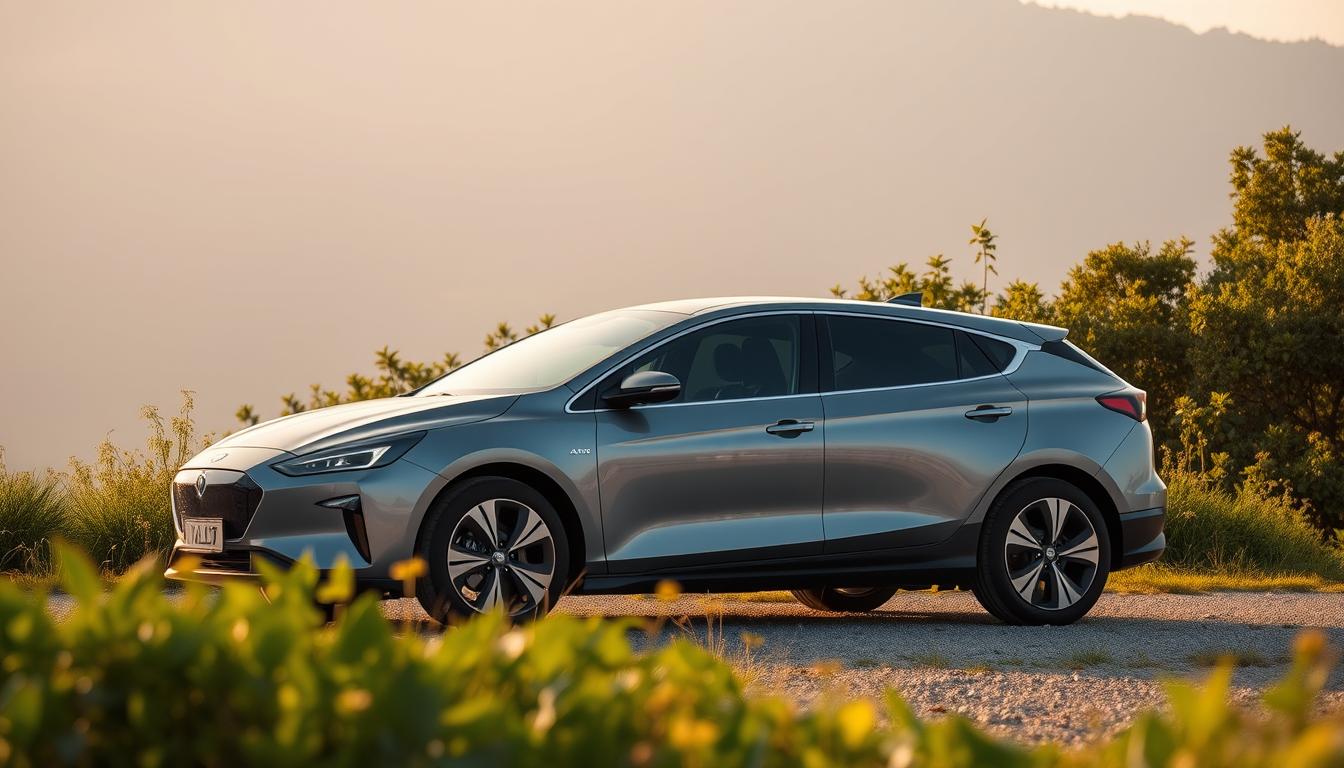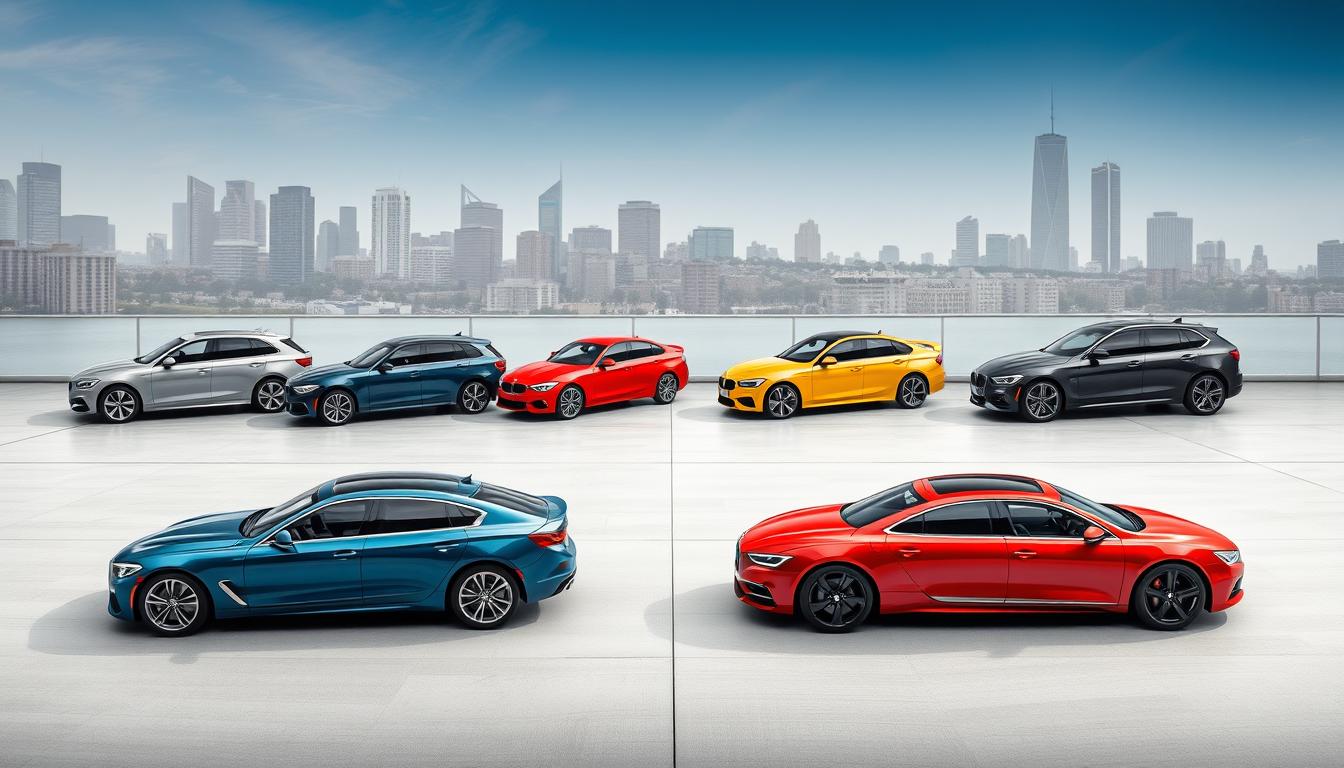The automotive landscape is shifting towards more sustainable options, and hybrid vehicles are at the forefront of this change. With the rising cost of fuel, consumers are looking for fuel-efficient alternatives that don’t break the bank.
Did you know that there are now numerous hybrid models available in the market, priced under $30,000? These vehicles not only offer impressive mpg ratings but also provide exceptional value to buyers.
We will explore the most affordable hybrid vehicles on the market, analyzing their fuel economy and overall value. Our guide will help you navigate the increasingly accessible world of hybrid technology and discover how it can benefit both your wallet and the environment.
Key Takeaways
- Top picks for affordable hybrid vehicles in 2024.
- Detailed analysis of models from Toyota and Kia.
- Comparison of all-wheel drive options for added traction.
- Understanding mpg ratings in real-world conditions.
- How hybrid technology can benefit your wallet and the environment.
The Rise of Affordable Hybrid Technology
The rise of affordable hybrid technology is revolutionizing the way we think about transportation and fuel efficiency. We’re observing a significant shift in the automotive industry as hybrid technology becomes increasingly affordable and accessible to average consumers.
Why Hybrid Vehicles Are Becoming More Accessible
Several factors contribute to the growing accessibility of hybrid vehicles. The evolution of battery technology has dramatically reduced production costs, allowing manufacturers to offer hybrid models at more competitive price points. Additionally, government incentives and tax credits have played a crucial role in bringing down the effective cost of hybrid vehicles for many buyers.
Manufacturers have also streamlined production processes and begun sharing hybrid powertrains across multiple models, creating economies of scale. As a result, the growing consumer demand for fuel-efficient vehicles has pushed automakers to prioritize hybrid development, resulting in more options at lower price points.
The Benefits of Choosing a Hybrid in Today’s Economy
In today’s economic climate, with fluctuating gas prices and increasing environmental awareness, hybrid vehicles are particularly attractive for budget-conscious consumers. The long-term value proposition of hybrids includes not just fuel savings but also potentially lower maintenance costs and higher resale values compared to traditional gas vehicles.
As we consider the benefits of hybrid vehicles, it’s essential to look at the bigger picture. The table below highlights some key advantages of choosing a hybrid vehicle in today’s economy.
| Benefits | Hybrid Vehicles | Traditional Gas Vehicles |
|---|---|---|
| Fuel Efficiency | Higher MPG ratings | Lower MPG ratings |
| Maintenance Costs | Potentially lower | Potentially higher |
| Resale Value | Higher | Lower |
As the automotive industry continues to evolve, it’s clear that hybrid technology is playing a significant role in shaping the future of transportation. With its numerous benefits and increasing accessibility, hybrid vehicles are an attractive option for those looking to save on fuel costs and reduce their environmental impact.
What Makes a Hybrid Truly Fuel-Efficient
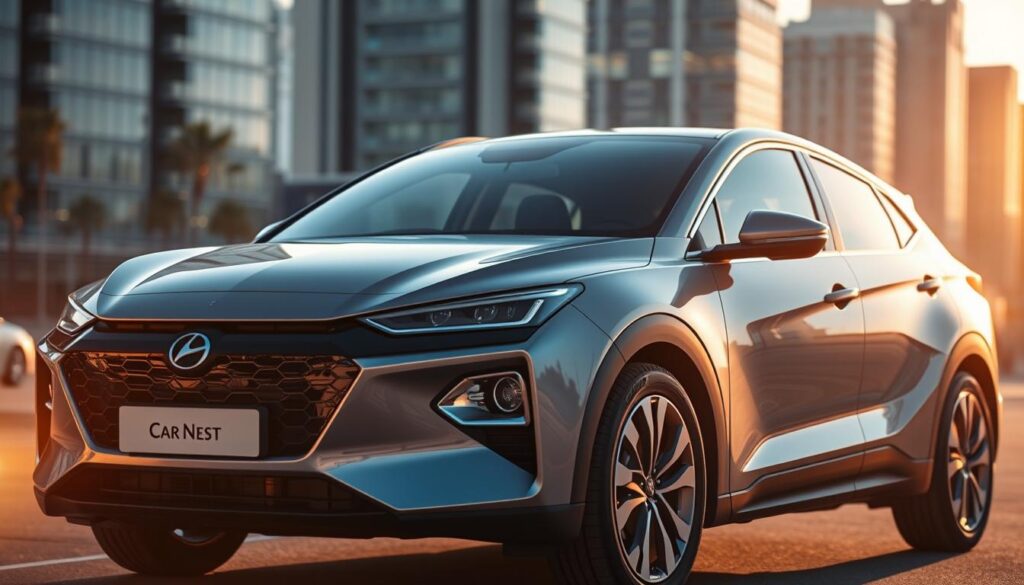
Understanding what makes a hybrid vehicle fuel-efficient is crucial for making an informed purchase decision. Hybrid vehicles have become increasingly popular due to their ability to optimize fuel consumption, and several key technologies contribute to their efficiency.
Understanding MPG Ratings and What They Mean
The Environmental Protection Agency (EPA) determines MPG (miles per gallon) ratings for vehicles, including hybrids, through a series of tests designed to simulate various driving conditions. These tests result in city, highway, and combined MPG ratings, which provide insights into a vehicle’s efficiency under different scenarios. For instance, city MPG ratings are typically lower than highway ratings because city driving involves more stop-and-go traffic, which can decrease fuel efficiency. It’s also worth noting that real-world fuel economy often differs from these official numbers due to factors like driving habits, vehicle maintenance, and environmental conditions.
- The city MPG rating reflects efficiency in urban driving conditions with frequent stops.
- The highway MPG rating indicates efficiency during steady, high-speed driving.
- The combined MPG rating offers a balanced view of a vehicle’s overall fuel efficiency.
Hybrid vs. Traditional Gas Engines: The Efficiency Difference
The fundamental difference between hybrid and traditional gas engines lies in their ability to optimize fuel consumption. Hybrid vehicles achieve their impressive efficiency through several key technologies, including regenerative braking systems that capture energy normally lost during deceleration. Additionally, hybrids can operate on electric power alone at low speeds and during specific driving conditions, significantly reducing fuel consumption. By integrating electric motors with conventional engines, hybrid systems optimize fuel consumption in various driving scenarios.
All-Wheel Drive vs. Front-Wheel Drive Efficiency
When it comes to drivetrain options, all-wheel drive (AWD) systems typically reduce fuel economy compared to front-wheel drive (FWD) configurations due to increased weight and mechanical complexity. However, modern hybrid AWD systems often mitigate this efficiency penalty by using a separate electric motor for the rear wheels, providing improved traction without significantly impacting fuel economy. Understanding the trade-offs between AWD and FWD helps buyers make informed decisions based on their specific needs and driving conditions.
Top Fuel-Efficient Hybrids Under $30,000 in 2024
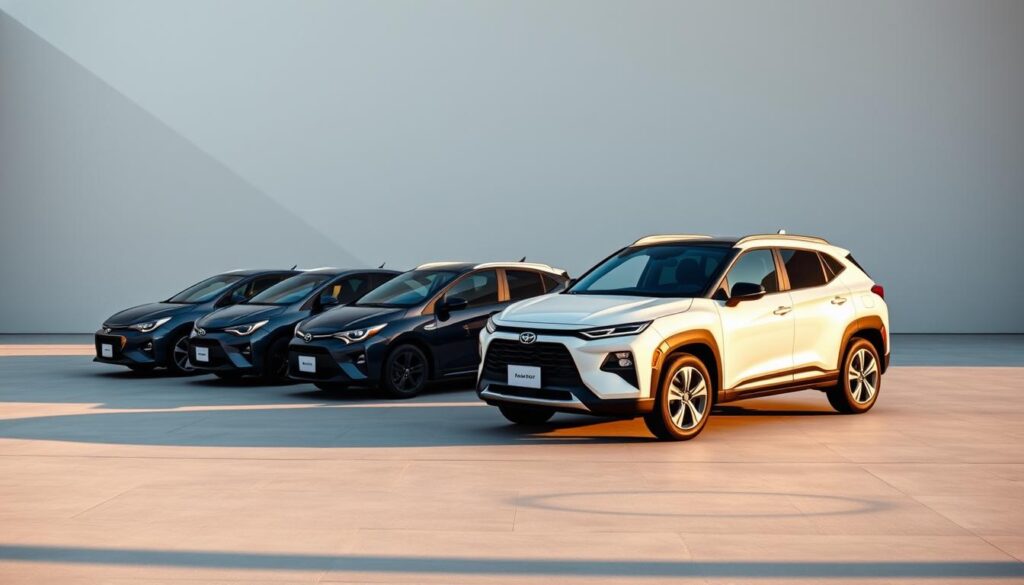
Our research has uncovered the most promising hybrid models that balance fuel efficiency and affordability, all under the $30,000 mark. To identify these top models, we applied a rigorous selection process.
Our Selection Criteria
We focused on hybrids with a manufacturer’s suggested retail price (MSRP) under $30,000, including destination charges. EPA combined fuel economy ratings of at least 40 mpg were a key consideration. We also evaluated reliability ratings and predicted ownership costs to ensure long-term value.
- MSRP under $30,000
- EPA combined rating of 40 mpg or higher
- Reliability and ownership costs
How We Evaluated Each Model
Our evaluation included analyzing professional reviews, owner feedback, and industry reliability data. We considered standard features and available options to assess the overall package. Recent model updates and improvements were also a factor in our assessment.
Toyota Corolla Hybrid LE AWD: Efficiency Meets Affordability
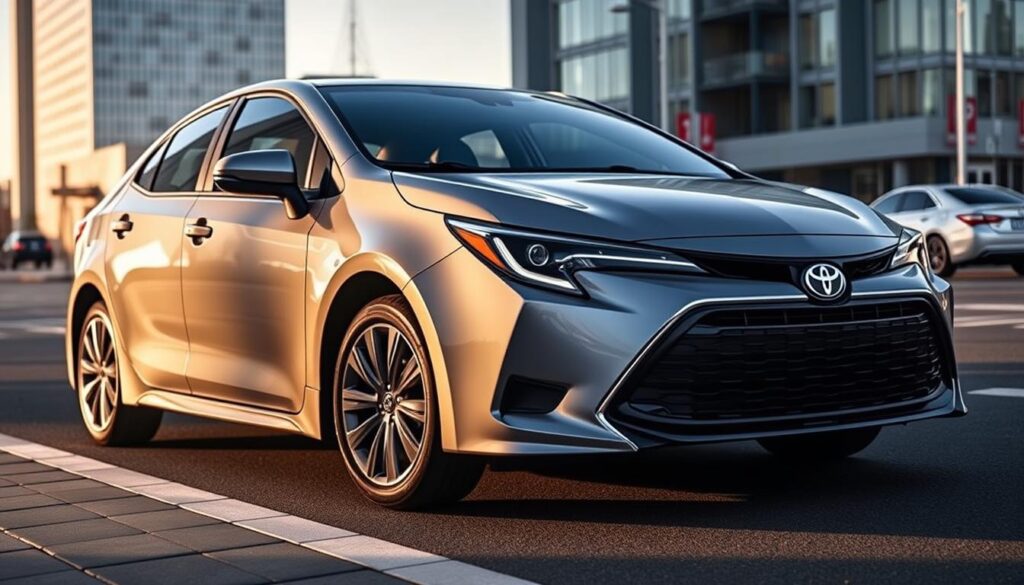
The Toyota Corolla Hybrid LE AWD is a game-changer in the automotive world, offering unparalleled efficiency and affordability. With its impressive fuel economy and all-wheel drive capability, it stands out in its class.
Performance and Fuel Economy
The Toyota Corolla Hybrid LE AWD boasts an EPA-estimated 48 mpg combined, making it one of the most fuel-efficient all-wheel drive vehicles available. Its hybrid powertrain combines a 1.8-liter four-cylinder engine with electric motors, providing a total system output of 138 horsepower.
The all-wheel drive system utilizes a dedicated 40-hp electric motor for the rear wheels, enhancing traction in adverse conditions without complex mechanical linkages.
Features and Technology
The Corolla Hybrid LE AWD comes equipped with Toyota Safety Sense 3.0, featuring adaptive cruise control, lane departure alert, and automatic high beams. The interior offers surprising spaciousness for a compact sedan, with comfortable seating and intuitive controls.
Value Proposition at $25,995
At $25,995, including destination charges, the Corolla Hybrid LE AWD represents exceptional value. It offers features typically found in more expensive vehicles, making it an attractive option for budget-conscious buyers.
Pros and Cons
Pros: Exceptional fuel economy, all-wheel drive capability, and a comprehensive suite of safety features.
Cons: Modest acceleration compared to non-hybrid competitors and a somewhat basic infotainment system.
Toyota Corolla Cross Hybrid: Crossover Efficiency
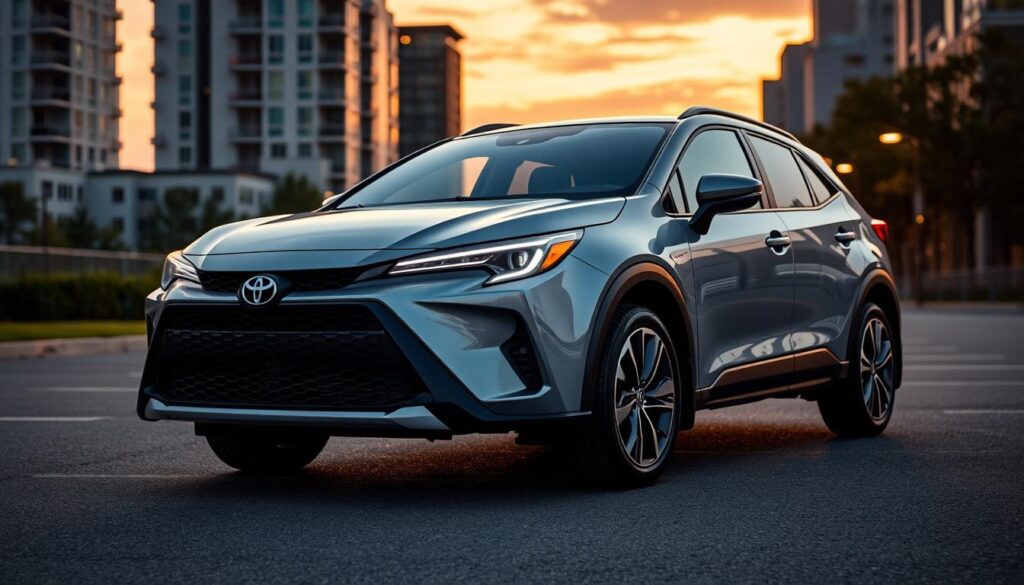
The Toyota Corolla Cross Hybrid offers a compelling mix of crossover utility and hybrid efficiency. As part of the frugal Corolla family, it draws inspiration from the RAV4 SUV, creating a unique blend of attributes.
Performance and Fuel Economy
The Toyota Corolla Cross Hybrid boasts a 2.0-liter inline-4 engine paired with Toyota’s planetary-gear hybrid system, delivering a combined 196 horsepower. This powertrain enables a 0-60 mph time in 8.0 seconds, outperforming the non-hybrid version. With an EPA fuel economy rating of 42 mpg combined (45 city, 38 highway), it achieves fuel economy numbers typically associated with compact sedans.
Spaciousness and Practicality
The Corolla Cross Hybrid offers ample space for passengers and cargo, exceeding the standard Corolla Hybrid sedan. It comfortably seats five passengers and features practical amenities like roof rails and multiple USB ports for device charging. The available power liftgate adds to its convenience.
Value Proposition at $29,570
At a price of $29,570, the Toyota Corolla Cross Hybrid is an attractive option for those seeking crossover versatility without compromising on fuel efficiency. You can explore more details on the official Toyota website: Toyota Corolla Cross Hybrid.
Pros and Cons
The Corolla Cross Hybrid’s strengths include its excellent fuel economy, spacious interior, and capable handling. However, it has a somewhat firm ride quality and interior materials that prioritize durability over luxury. For more insights on optimizing your vehicle’s user experience, visit Cowrit Technologies.
Kia Niro Hybrid: Compact Efficiency Champion
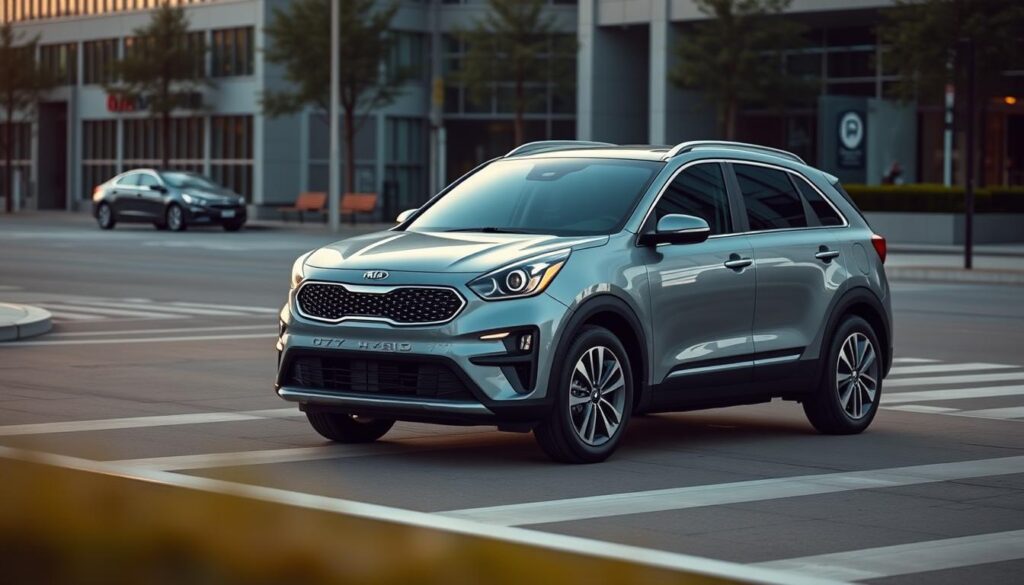
As a compact efficiency champion, the Kia Niro Hybrid offers a compelling blend of economy and features. With its impressive fuel economy and modern design, it’s an attractive option for those seeking a practical and eco-friendly vehicle.
Performance and Fuel Economy
The Kia Niro Hybrid boasts an impressive EPA combined rating of 53 mpg, making it a standout in its class. Its powertrain combines a 1.6-liter four-cylinder engine with an electric motor, delivering a total system output of 139 horsepower. This configuration provides adequate acceleration for daily driving needs while maintaining exceptional fuel efficiency.
Interior Comfort and Technology
The Niro Hybrid’s interior is surprisingly spacious for a compact vehicle, offering comfortable seating for five and thoughtful ergonomics throughout the cabin. Technology features are a strong point, with a standard 8-inch touchscreen and available 10.25-inch display supporting wireless Apple CarPlay and Android Auto. Advanced driver assistance systems come standard, enhancing safety and convenience.
Value Proposition Under $30,000
With a starting price well below $30,000, the Kia Niro Hybrid offers exceptional value. Its comprehensive warranty coverage, including a 10-year/100,000-mile powertrain warranty, adds to its appeal. This makes it an attractive option for budget-conscious buyers seeking a reliable and efficient vehicle.
Pros and Cons
The Kia Niro Hybrid’s primary advantages include its class-leading fuel economy, spacious interior, and comprehensive warranty. However, it is available only with front-wheel drive, and its cargo capacity is somewhat limited compared to larger crossovers. Despite these drawbacks, the Niro Hybrid remains a compelling choice for those prioritizing efficiency and urban practicality.
Kia Sportage Hybrid: Spacious and Efficient
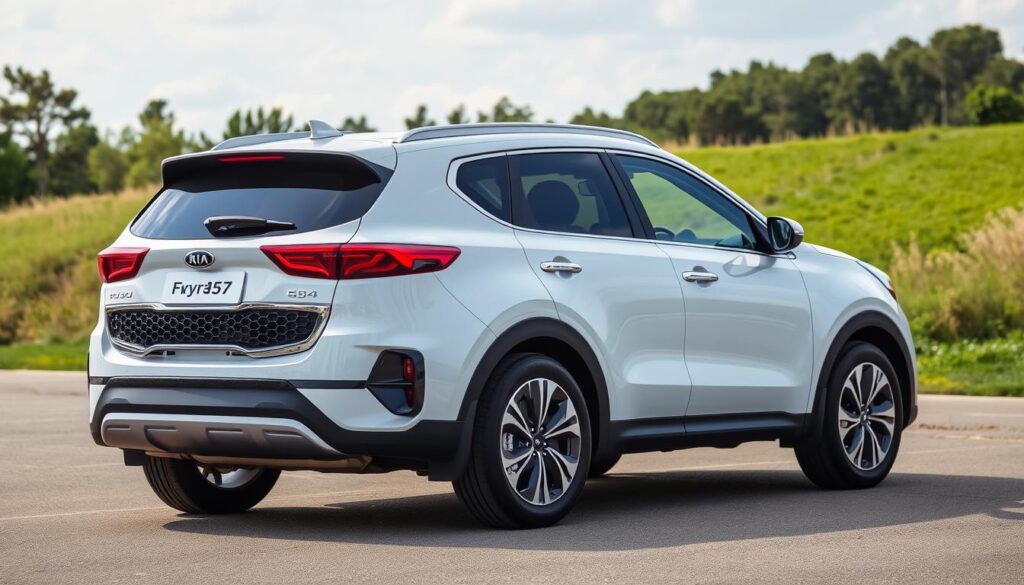
The Kia Sportage Hybrid is redefining the compact SUV segment with its generous interior space, excellent fuel economy, and array of family-friendly features. This hybrid vehicle offers a unique blend of performance, efficiency, and spaciousness that makes it an excellent choice for various driving needs.
Performance and Fuel Economy
The Kia Sportage Hybrid boasts a combined 227 horsepower, providing spirited acceleration while maintaining an impressive fuel economy of 40 mpg combined in its front-wheel-drive configuration. The hybrid powertrain ensures that drivers can enjoy a responsive driving experience without compromising on efficiency.
Interior Space and Features
The Sportage Hybrid’s recent redesign has significantly increased its interior space, with rear seat legroom rivaling some midsize SUVs. The cargo capacity is also noteworthy, offering 39.5 cubic feet behind the rear seats and expanding to 74.1 cubic feet with the seats folded. The interior features high-quality materials and an attractive design, complemented by available dual 12.3-inch displays for the instrument cluster and infotainment system.
Value Proposition for Families
For families, the Kia Sportage Hybrid presents an attractive package with its space, efficiency, and range of family-friendly features. These include multiple USB ports, available rear window sunshades, and a comprehensive suite of safety technologies. The front-wheel drive LX trim offers exceptional value for those who don’t require all-wheel drive capability, staying under the $30,000 price cap.
Pros and Cons
The main advantages of the Kia Sportage Hybrid include its spacious interior, excellent mpg, and generous list of standard and available features. However, the all-wheel drive version exceeds the $30,000 budget, and the infotainment system can be complex, requiring a learning curve. Despite these drawbacks, the Sportage Hybrid remains a compelling choice in its class.
2025 Toyota Camry Hybrid: The All-Hybrid Sedan
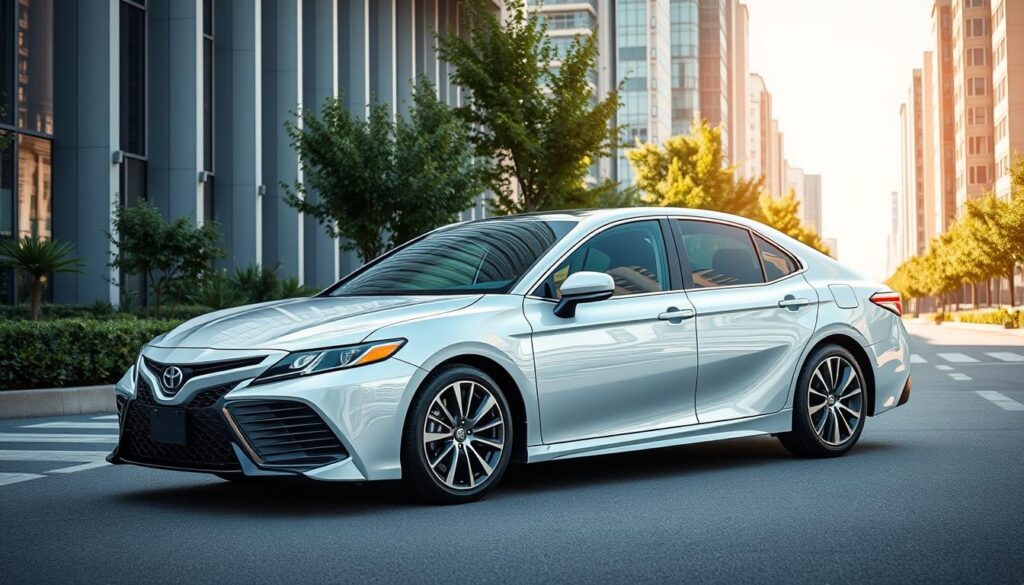
The 2025 Toyota Camry Hybrid is making waves with its all-hybrid lineup, a bold move by Toyota that signifies a major shift in the automotive industry. This change is not just about the powertrain; it’s about offering a more efficient, environmentally friendly option without compromising on performance.
New All-Hybrid Lineup Features
The 2025 Camry Hybrid features a new hybrid setup that combines a 2.5-liter, four-cylinder engine with electric motors. This results in a total system output of 225 horsepower for front-wheel-drive models and 232 horsepower for all-wheel-drive configurations. The all-hybrid lineup is a significant step towards a more sustainable future.
Performance and Fuel Economy
While official EPA ratings haven’t been released, we expect the 2025 Camry Hybrid to achieve approximately 45-50 mpg combined, based on the current generation’s performance. The hybrid engine is designed to provide a balance between fuel efficiency and performance, making it an attractive option for those looking for a reliable and efficient drive.
Interior Updates and Technology
The interior of the 2025 Camry Hybrid has been updated with new color and trim options, improved seat designs for better comfort, and the latest infotainment system with wireless Apple CarPlay and Android Auto connectivity. These updates enhance the overall driving experience and provide a more modern feel.
Pros and Cons
The primary advantages of the 2025 Camry Hybrid include its improved fuel efficiency, modern features, and the fact that it maintains a starting price under $30,000. However, the loss of the V6 engine option and the reservation of desirable features for higher trim levels are notable drawbacks.
Comparing All-Wheel Drive Options Under $30,000
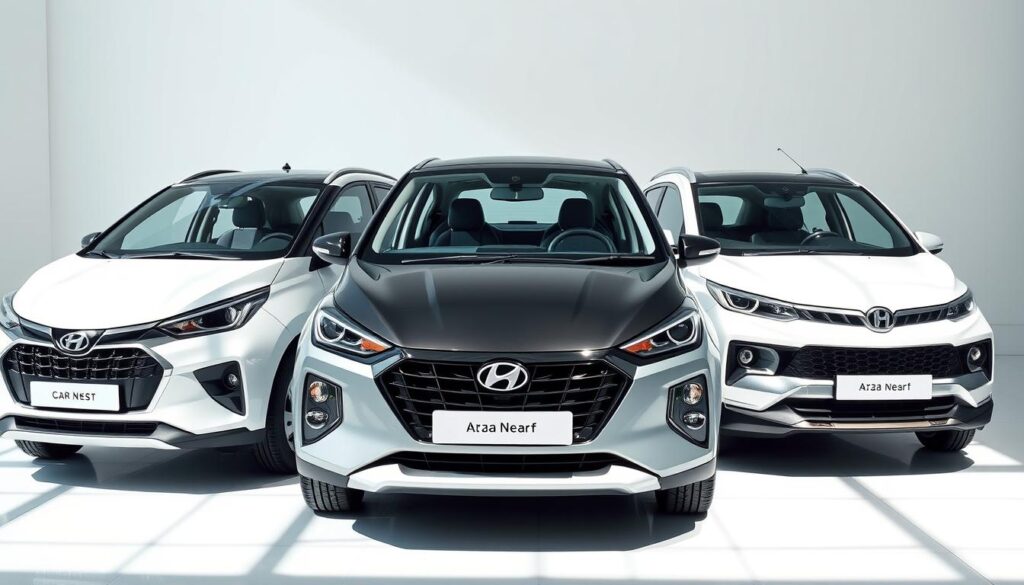
When it comes to all-wheel-drive hybrids under $30,000, the options are limited but valuable. For many drivers, especially those living in areas with harsh winter conditions, all-wheel drive is not just a preference but a necessity.
The market currently offers two compelling choices: the Toyota Corolla Hybrid LE AWD and the Toyota Corolla Cross Hybrid. Both vehicles implement Toyota’s innovative AWD-e system, which utilizes a dedicated electric motor for the rear wheels, enhancing traction without significantly impacting fuel efficiency.
Toyota Corolla Hybrid LE AWD vs. Toyota Corolla Cross Hybrid
The Toyota Corolla Hybrid LE AWD and Toyota Corolla Cross Hybrid cater to different needs within the budget-friendly AWD hybrid segment. Here’s a comparison of their key features:
| Feature | Toyota Corolla Hybrid LE AWD | Toyota Corolla Cross Hybrid |
|---|---|---|
| Combined MPG | 48 mpg | 42 mpg |
| Starting Price | $25,995 | $29,570 |
| Cargo Space | Limited | More spacious |
| Ground Clearance | Lower | 8.1 inches |
| Hybrid System Power | 138 hp | 196 hp |
When to Choose AWD for Your Hybrid
Choosing an all-wheel-drive hybrid makes sense if you frequently drive in snowy, icy, or unpaved conditions. The added traction significantly enhances safety and control. However, for urban dwellers who only occasionally face challenging road conditions, a front-wheel-drive model might offer better value and slightly improved fuel efficiency.
Ultimately, the decision between the Toyota Corolla Hybrid LE AWD and the Toyota Corolla Cross Hybrid depends on your priorities: fuel economy and cost-effectiveness versus space and power. Both options are valuable in the context of budget-friendly AWD hybrids.
Conclusion: Making the Smart Choice for Efficiency and Value
After examining various hybrid models under $30,000, we can confidently say that there’s a perfect blend of efficiency, features, and affordability available. The Toyota Corolla Hybrid LE AWD stands out as a value leader, offering 48 mpg combined efficiency at $25,995. For those needing more space, the Toyota Corolla Cross Hybrid and Kia Sportage Hybrid provide excellent alternatives.
The Kia Niro Hybrid remains the efficiency champion at 53 mpg combined, ideal for drivers prioritizing maximum fuel economy. The upcoming 2025 Toyota Camry Hybrid represents a significant shift toward mainstream hybrid adoption. When comparing these fuel-efficient hybrid cars, consider your specific needs regarding interior space, driving conditions, and feature preferences.
These affordable hybrids demonstrate that efficiency, practicality, and value can coexist. For personalized advice on selecting the right model, don’t hesitate to reach out to our team of experts via WhatsApp: +44-7822010953. Whether you choose a new or slightly used model like the Toyota Prius, you’re making a smart choice for both the environment and your wallet.
